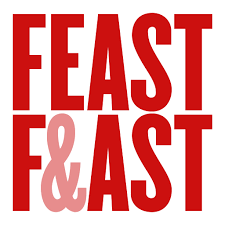Genuine, Humble Fasting
We must always know our “humus”, our humility and connection to the earth, and our “imago Dei”, our divinity and connection to God. For this is who we are.
When affluence allows people to feast too frequently and independently of others, feasting loses much of its joy and integrity. It results in ill health and dulls our sensitivity to the needs of others.
- Joetta Handrich-Schlabach
Lent is to be a time of deep hunger for God and an ache for a fleeting glimpse of God’s face. But without spiritual practices or disciplines such as fasting, prayer, and almsgiving, we have no balance and our feasting is deadly.
For the Bible is clear about unacceptable feasting. The rich man, who goes unnamed, gorges himself while Lazarus, in a twist, is named as the person who dies at the rich man’s gate. The Bible is clear in its call for genuine, humble fasting. Not as a pious gesture or a grim act of will, but as an act of repentance, a seeking of God, a creating of extra space in our lives for spiritual reflection. Within Muslim spiritual practice, fasting is used to convey solidarity and remembrance of those who go without food on a daily basis. So to feast without fasting is to dismiss connection, forget our own mortality, and refuse to undergo an inward looking.
To quote Joetta Handrich-Schlabach:
“When affluence allows people to feast too frequently and independently of others, feasting loses much of its joy and integrity. It results in ill health and dulls our sensitivity to the needs of others. Reclaiming the feast may require learning to fast. Regularly abstaining from meat and other rich foods can be a spiritual act of walking with other people. Reserving for special events foods we might easily afford, but that are luxury items in the world economy, unites us with those who have less.”
In our Ash Wednesday Hebrew Scripture reading, the prophet Joel calls for the whole nation to abstain from those things which bring about violence, destruction, and domination. Can we even imagine the power of a whole nation strong enough, with humility and hope, that they would tear their hearts away from that which brings violence, destruction, and domination? Can we imagine a whole nation admitting that they might be wrong and there is another way? How could we, corporately, begin to fast in this way? To not gorge ourselves on the blood of others?
As we enter February, we also enter the liturgical season of Lent. Lent is a call to turn from gorging ourselves on the hearts of others. We fast. We remember who we are.
German scholar, Dorothee Soelle, believes that knowing we are all mystics, is the grounding for knowing we were also created in the image of God. She writes, “The greatest sin of humans is to forget that we are royal children. ‘Rabbi Bunam said to his disciples: 'Everyone must have two pockets, so that [they] can reach into the one or the other, according to [their] needs. In the right pocket are to be the words: “For my sake was the world created,” and in [their] left: “I am earth and ashes.”’”
As I shared above for Ash Wednesday, in the book of Genesis there are two creation stories. Each has a different view of what it means to be human. One was told when the people were proud and mighty and conquerors. That story said, “You were made out of the tillable soil, the dust of the ground, and to the dust you shall return.” Ashes to ashes, dust to dust. For that reason we apply the ash.
The other was told to the people when they were broken and despairing and conquered - living in Exile. That story said, “You were made in the image of God.” For that reason we apply the oil, a sign of God’s blessing and messianic choice.
We need to tell and hear both stories, for we must always know our “humus”, our humility and connection to the earth, and our “imago Dei”, our divinity and connection to God. For this is who we are.
✝

